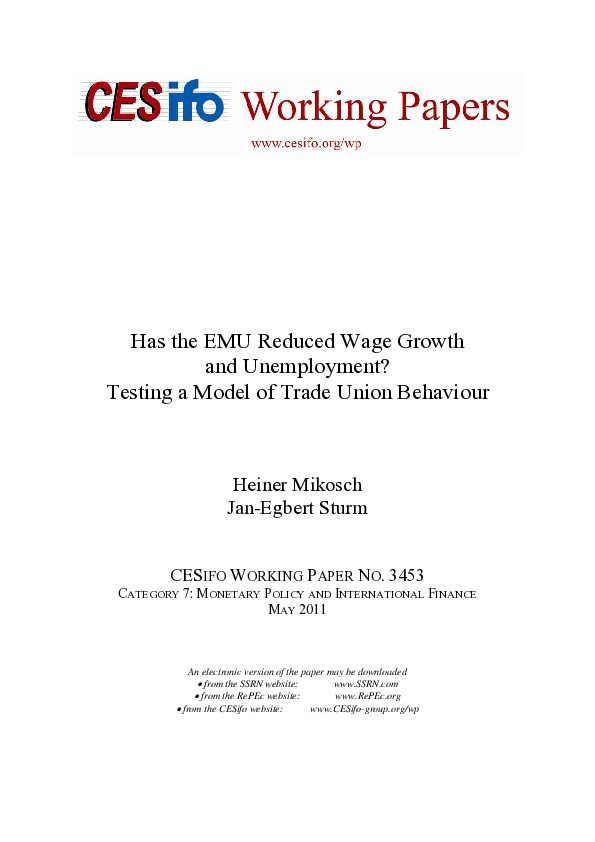Has the EMU reduced wage growth and unemployment? Testing a model of trade union behaviour

Mikosch, Heiner ; Sturm, Jan-Egbert
CESifo - Munich
2011
27 p.
EMU ; trade union attitude ; unemployment ; wages
CESifo working paper
3453
EMU and International monetary system
English
Bibliogr.
"By using a model of trade union behaviour Grüner (2010) argues that the introduction of the European Monetary Union (EMU) led to lower wage growth and lower unemployment in participating countries. Following Grüner's model, monetary centralization lets the central bank react less flexibly to national business cycle movements. This increases the amplitude of national business cycles which, in turn, leads to higher unemployment risk. In order to counter-balance this effect, trade unions lower their claims for wage mark-ups resulting in lower wage growth and lower unemployment. This paper uses macroeconomic data on OECD countries and a difference-in-differences approach to empirically test the implications of this model. Although we come up with some weak evidence for increased business cycle amplitudes within the EMU, we neither find a significant general effect of the EMU on wage growth nor on unemployment. "
Digital
The ETUI is co-funded by the European Union. Views and opinions expressed are however those of the author(s) only and do not necessarily reflect those of the European Union or the ETUI.